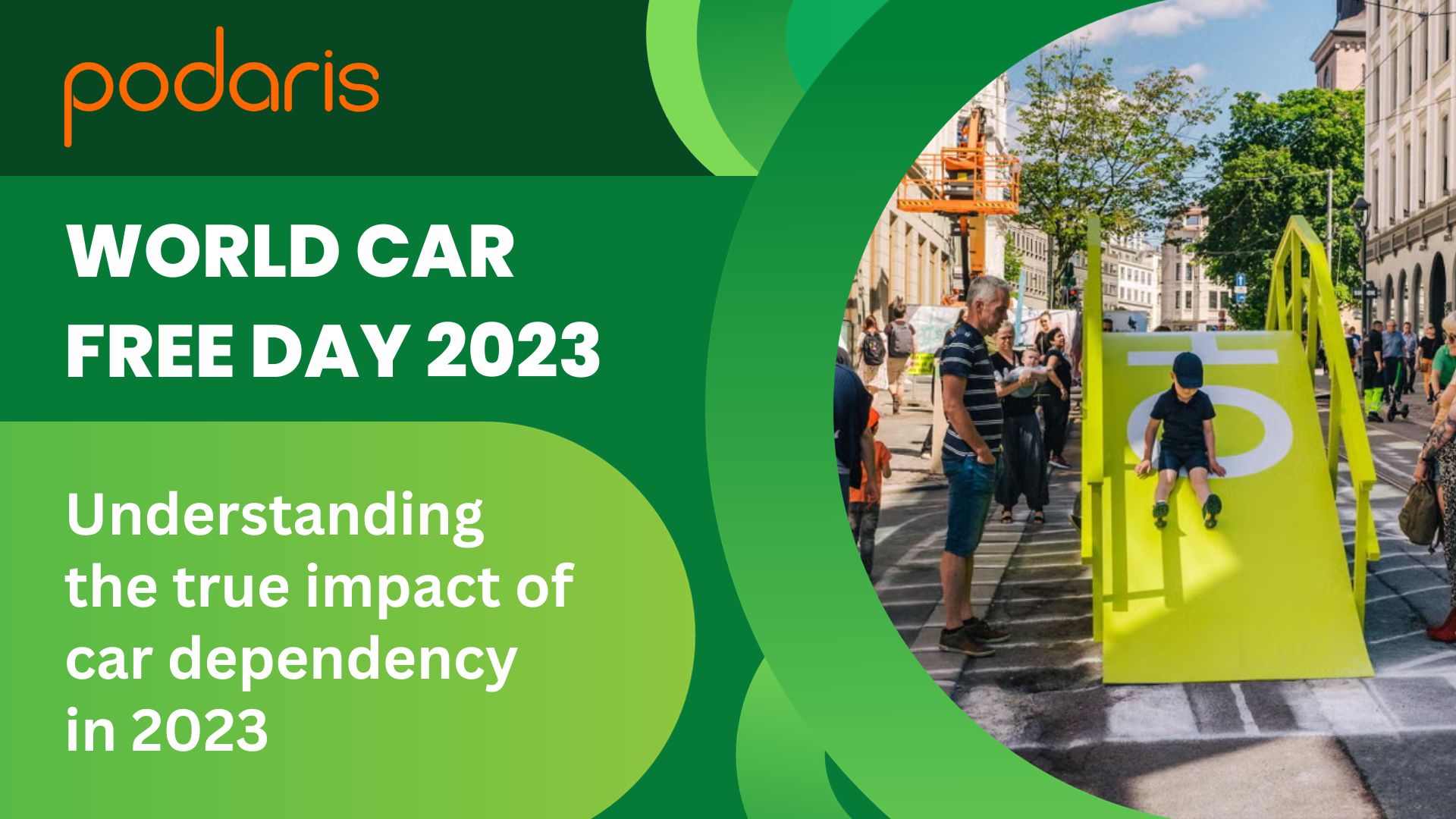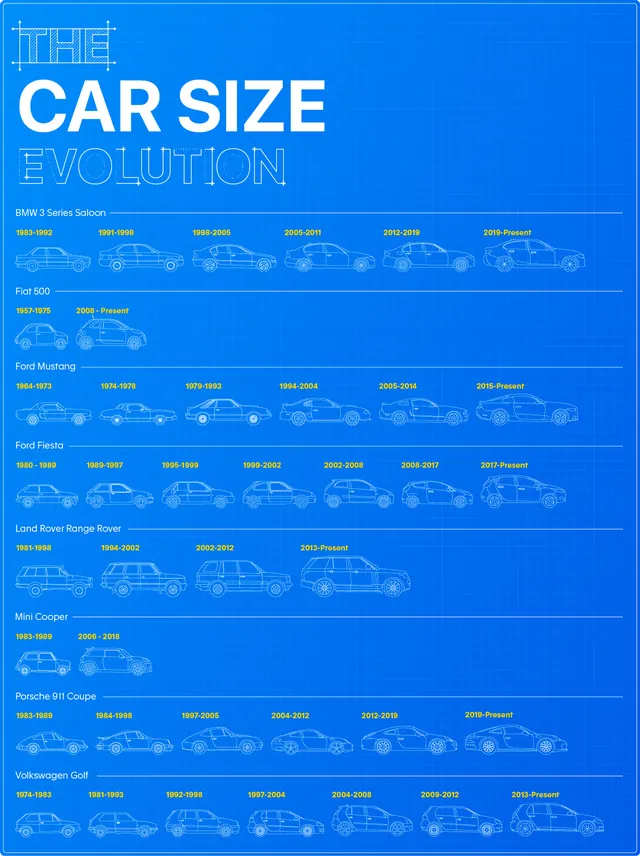
In this article we're going to a look at World Car Free Day, its history, its relevance to planners today and how some are choosing to celebrate in 2023. Then we'll take a deeper dive into the true impact of car use, with particular attention to the UK (certainly a nation of car lovers but a surprisingly active population nontheless), and how Podaris customer Translink has been planning a less car dominated, more sustainable Belfast.
World Car Free Day - A Brief History
This 22nd of September marks World Car Free Day, the 23rd held internationally since the date was formalised in 2000. Prior to this, a number of ad hoc and regional car free events had taken place around the world to encourage reflection on the role and necessity of cars and promote active and sustainable travel.
For local authorities and city planners around the world, the day represents an opportunity to reimagine public spaces and promote alternative forms of transport. The city of London, for example, is choosing to mark the event by activating play streets for three days in the capital, closing residential roads to vehicular traffic and creating safe spaces for people to interact (and use spacehoppers?)

Why Celebrate?
As of 2023, there are approximately 1.4 billion cars in the world, with the US and New Zealand leading in the number of cars per person at around 0.9 each.
The pandemic gave us clear and measurable insights into the environmental impact of car use. For many of us adapting to the pandemic in its early days, the reduction in noise pollution was perhaps the most immediate and noticeable environmental change. While the UK does not even rank in the top 10 countries worldwide in terms of vehicle ownership per capita, CO2 emissions dropped by 11% since travel was disrupted during COVID-19. Despite this, in the same year, 24% of pollution in the UK was produced by transport, and 52% of that from cars and taxis (Department for Transport).
In 2010, the Environmental Audit Committee determined that the UK spends as much as £20b annually on healthcare related to the effects of air pollution and that over the following 18 years, a 1μg/m3 reduction in fine particulate air pollution in England could prevent as many as 50,900 cases of coronary heart disease, 16,500 strokes and 4,200 lung cancers.
Unfortunately, the rise in ‘autobesity’ (the trend for newer cars to be larger and heavier) is having a negative impact on break, tyre and road pollution, with breaks in SUVs shown to be working twice as hard as those in small, compact cars (according to a recent study undertaken by Dr William Hicks and team at Imperial College London), and producing greater particle pollution as a consequence. All of this is of course to say nothing about the current climate emergency and the role of cars in the production of greenhouse gases.

The UK does show a mixed picture of travel outside of cars. While UK cities are more poorly served by trams, metro or urban light rail than any other wealthy western country, the UK does lead in terms of the percentage of total trips made by walking.
We recently responded to some of the controversy surrounding UK Prime Minister Rishi Sunak's public support for motorists and his ordering of a review of low traffic neighbourhoods, asserting that Podaris has always been invested in promoting sustainability and working with transport planners to build liveable, equitable and sustainable communities.
That means empowering planners to surface data-driven insights into the real-world impact of their transport scenarios, such that the feasibility of sustainable transport options can be supported by scrutable metrics. Planners are using these tools today to explore potential mode-shift with our demand modelling engine, and catchment to proposed public transport services with our dataset and isochrone tools.
Planning for safe, better-connected and more accessible cities
WSP Australia, who recently joined their UK counterparts as Podaris customers this September, delivered a thoughtful article on the notion of creating car-free cities, earlier this year. Their outline for urbanists seeking to facilitate a smooth transition to cities less dominated by and dependent on cars begins with the “need to remove the biggest barriers to active travel: safety and access.” To rethink streetscapes in such a way that they're not actively hostile to those who seek to walk or ride, with particular attention to the needs of very young children, the elderly and people living with disabilities.
We recently showcased Translink's use of Podaris to assist in the planning of one such city's blueprint for safer, more accessible and vibrant streets. Belfast's ‘Bolder Vision’ is an ambitious scheme that strives to create more efficient access to public transport and less dominance by cars.
In order to do this, Translink were required to take a holistic approach to analysing transport connectivity within the region, in order to understand how people might be impacted by pedestrianisation and new public transport schemes. Before tools like this, exploring the impact of such schemes on people's access to essential services was time-consuming and laborious at best. Today, it's easier than ever, with rapid tools for accessibility analysis.
Schemes such as this are only likely to become more prevalent as cities wrestle with the impact of car dominance and the current climate emergency. Hopefully this September 22nd will give us all a fleeting view to how a cleaner, more sustainable future might look.